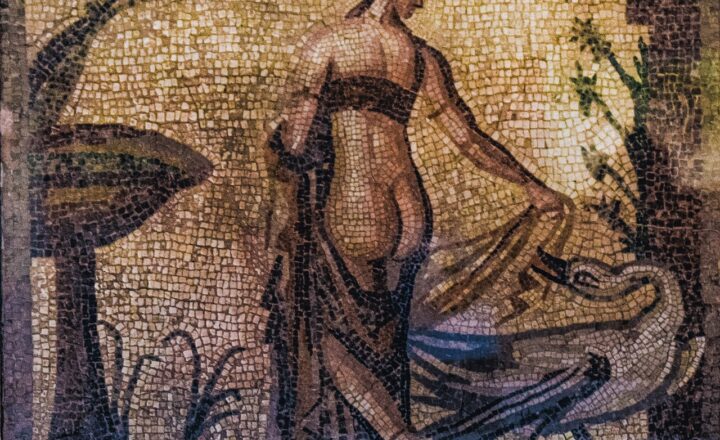How the World’s First Libraries Shaped the Course of Knowledge
November 17, 2024

The concept of a library is so ingrained in our daily lives that it’s easy to take it for granted. However, the first libraries were groundbreaking institutions that shaped the course of human knowledge, culture, and civilization. This article explores the origins of libraries, their impact on society, and how they have evolved over time.
1. The Birth of Libraries: An Ancient Innovation
Libraries trace their origins back to ancient civilizations, with one of the earliest known libraries established in Mesopotamia around 2500 BCE. The Sumerians, who inhabited this region, created clay tablets inscribed with cuneiform writing to record important information, from administrative records to literary works.
The most famous of these ancient libraries was the Library of Ashurbanipal in Nineveh, which housed thousands of clay tablets containing a wealth of information on subjects such as religion, mythology, medicine, and literature. This repository of knowledge not only preserved the culture of the Assyrians but also influenced later civilizations, including the Greeks and Romans.
2. The Role of Libraries in Ancient Greece and Rome
The importance of libraries continued to grow in ancient Greece and Rome. The Greeks established public libraries as centers of learning, and philosophers like Aristotle and Plato contributed significantly to their collections. The Lyceum and the Library of Alexandria are examples of institutions that collected manuscripts of great historical and philosophical significance.
The Library of Alexandria, founded in the 3rd century BCE, became a monumental symbol of knowledge and culture. It was said to house over 700,000 scrolls and attracted scholars from various parts of the world. Scholars like Euclid and Archimedes frequented this institution, which fostered an environment of intellectual collaboration and innovation.
Library systems in Rome also flourished, leading to the establishment of public libraries within the Empire. The presence of such libraries democratized knowledge, making information accessible to citizens who could not afford private scroll collections. This progression of library systems laid the foundation for future educational systems.
3. Libraries as Custodians of Knowledge
Throughout history, libraries have served as custodians of knowledge. By preserving sacred texts, historical documents, and scientific works, libraries have played an essential role in preventing the loss of knowledge during turbulent times. The burning of the Library of Alexandria is often seen as a tragic loss of ancient wisdom, marking a significant turning point in the history of human thought.
In the Middle Ages, monasteries became important repositories of knowledge, with monks diligently copying and preserving texts. The establishment of libraries in monasteries ensured that essential works were safeguarded, allowing knowledge to thrive despite the challenges of the period. It was during this time that the preservation of classical works would later fuel the Renaissance, a rebirth of art and learning in Europe.
4. The Renaissance and the Rise of Public Libraries
The Renaissance marked an era of rediscovery, with scholars seeking to reclaim the knowledge of classical antiquity. This period saw the establishment of public libraries as a means to disseminate knowledge widely. Notable initiatives like the Biblioteca Medicea Laurenziana in Florence and the Vatican Library played crucial roles in this resurgence of scholarly pursuit.
Public libraries began to emerge, providing access to literature and education for the general populace. This shift in focus towards public access reflected the changing attitudes towards knowledge as a shared resource rather than a privilege of the elite.
5. Modern Libraries: Adaptation and Innovation
In the modern era, libraries have had to adapt to the digital revolution. As we transitioned into the 21st century, the rise of the internet and digital technology has transformed how we access information. Today, libraries are not just physical spaces filled with books; they are dynamic institutions that offer a wide range of services including digital media, online databases, and community programs.
Public libraries have become community hubs, fostering digital literacy, providing assistance with research, and connecting people through events and workshops. Librarians have taken on new roles as educators and advocates for information access and privacy, ensuring that libraries remain critical in a rapidly changing informational landscape.
6. The Future of Libraries
As we look to the future, libraries will continue to evolve. With advancements in artificial intelligence, big data, and personalized learning, libraries are set to expand their reach and impact even further. The role of libraries as curators of information and guardians of knowledge will remain essential in an era where misinformation is prevalent.
Innovations like virtual reality experiences, interactive learning spaces, and maker labs have the potential to engage younger generations in new and exciting ways. By embracing new technologies, libraries can foster a culture of lifelong learning that adapts to the needs of their communities.
Conclusion
The journey of libraries through history reflects humanity’s quest for knowledge and understanding. From the clay tablets of Mesopotamia through the venerable halls of Alexandria to the digital platforms of today, libraries have been pivotal in shaping our collective intellectual legacy. As we continue to advance, the essence of libraries as centers of knowledge, culture, and community will remain a vital aspect of our civilization.
Whether you visit a local library or explore digital archives, the importance of these institutions cannot be overstated. They are not merely buildings filled with books; they are gateways to the knowledge that fuels society’s progress. In recognizing their value, we can ensure that libraries continue to be cherished as vital resources for generations to come.






